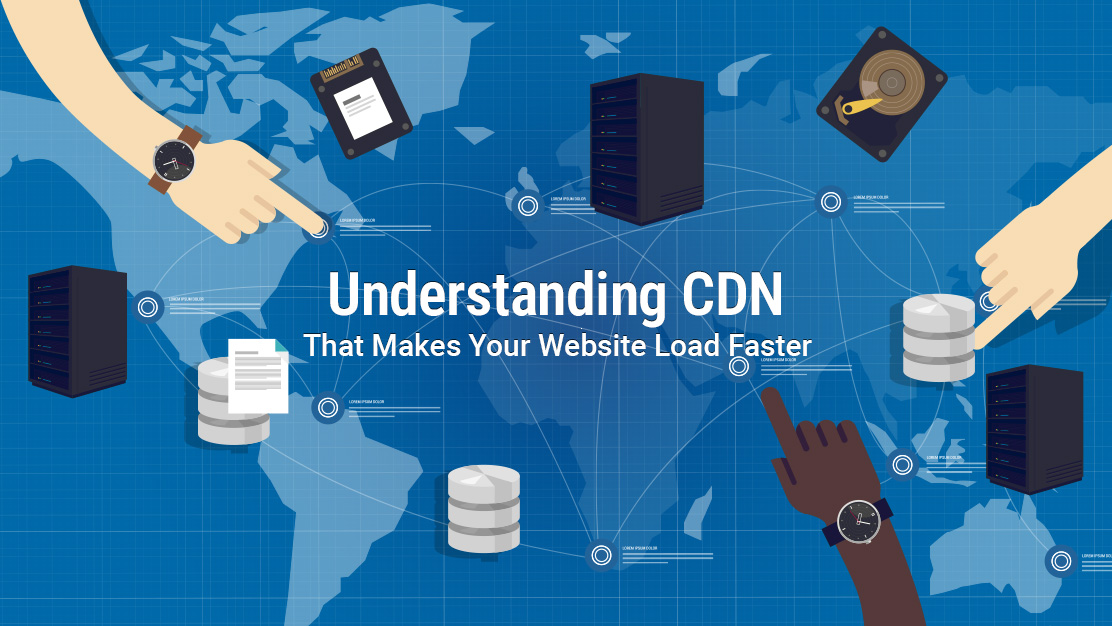
We Develop Websites Keeping Marketing in Mind
Which ECommerce Platform is Best: Shopify Or Magento?
 Apr. 18, 2025, 12:00 AM
Apr. 18, 2025, 12:00 AM- By Eclick Softwares and Solutions

Magento, the powerful open-source e-Commerce platform provides a flexible and scalable solution to build online stores. Its paid version Magento Commerce (Magento Commerce Cloud or Adobe Commerce Cloud) is a comprehensive solution for all larger businesses having advanced needs. It helps with all the features and functionality of Magento Open Source but offers additional and exclusive capabilities and support.
Next, Shopify is a hosted solution that allows businesses to easily create and manage their online stores. The core value of Shopify is explained by its ability to create and manage an online store, irrespective of technical expertise. For the bigger businesses, Shopify Plus is the expertise plan to support higher growth.
Shopify vs Magento: Feature by Feature
• Ease of Use
Magento needs technical knowledge and expertise for proper setup and management. Only the users completely comfortable with web development and server management can fully leverage Magento's potential and handle the complexities and the platform's requirements.
On the other hand, Shopify is intuitive and easy to use, regardless of technical knowledge and background. Using the drag-and-drop builder of the platform, creating an online store without a single line of code can be created. This user-centric design ensures even people having minimal technical skills will be able to effectively run their E-commerce businesses. Hence, Shopify is a popular choice among the small to medium-sized businesses.
The Best Choice Is - Shopify.
Magento might be powerful, but it has a steep learning curve.
• Customization
Magento wins when its rich customization capabilities are concerned. The business stores can meet specific needs and preferences when it has full access to the source code. For the store to appear and function as expected, the Magento developers build custom modules, integrate third-party applications, and make the necessary extensive changes. This customization level has made the online stores become feature-rich an unique to cater to complex business requirements.
But Shopify offers a range of customization options, still, it won't match Magento's depth. In Shopify, Customization is primarily achieved through the themes and apps available in its marketplace. The stores' appearance and function can be modified through the tools provided. However, for more advanced customizations, it is necessary to rely on third-party apps or be acquainted with Shopify's Liquid template language.
The Winner Here:
Magento's flexibility proves useful for businesses in need of bespoke solutions and contains all the resources for implementing them. While Shopify provides an easy approach that makes it easier for users to enhance their stores even if they don't have extensive technical knowledge, it comes with a few imposed limitations.
• Themes and Templates
The range of themes and templates in Magento can be highly customized, with its various themes that improve both its performance and user experience. The updated versions have modern, fast-loading front-end capabilities, thus making it a strong choice for the businesses in need of a high customization degree and superior and superior performance.
Shopify supports both custom-developed themes and professionally designed templates that can customized easily. Built with user-friendliness in mind, these themes enable making changes to the stores using a simple drag-and-drop editor. The platform offers both free and premium themes, thereby fulfilling the aesthetic and functional requirements.
Which Platform Wins?
Priorities determine the choice between Magento and Shopify. For advanced customization and performance, Magento’s theme is applicable. But for ease of use and quick setup, the more streamlined solution is Shopify's pre-designed themes.
• Extensions And Apps
Magento's extensive marketplace contains over 5660 extensions and plugins. Nevertheless, Magento plugin integration and management might need a little technical expertise. In fact, these need regular updates and maintenance for the extensions to correctly and securely function.
Shopify provides a range of built-in features covering the essential needs of most online stores. But it even consists of a large marketplace with more than 10309 apps. Shopify apps are so designed to automatically integrate with Shopify's platform, thus reducing the risk of compatibility issues.
Which Platform Wins?
Shopify takes a user-friendly approach to enhancing its online stores with various apps. Extensive technical skills are not needed.
• Hosting
Since Magento is a self-hosted platform, any server can be chosen and the needed changes can be made to improve website performance. Because of this approach, there is flexibility in choosing the best hosting solution that best fits the business needs, while also demanding technical expertise for effective management.
Shopify also fully manages all hosting and server-related issues. Shopify's hosted nature ensures consistent performance, security, and reliability. Hence, it turns out to be a hassle-free option for users who have to avoid the intricacies of server management.
Which is the best here?
Magento is ideal when the requirement is to be in control of hosting. Shopify is ideal when the concern is to be overdone.
• Scalability
Magento is highly scalable. It is suitable for all large enterprises with complex needs. Magento's robust architecture handles large product catalogs, high traffic volumes, and complicated business processes. With a business growing, Magento scales to meet the increasing demands, while keeping its performance intact.
Shopify scales properly for small to medium-sized businesses. Even if enterprise solutions are available, they will not offer the same customization level as Magento. The enterprise version, Shopify Plus provides all additional features and support for larger businesses, thereby enabling them to handle higher transaction volumes and more complex operations.
Which is the best here?
Magento. Shopify might scale well for many businesses but it does not offer the same flexibility and customization level as Magento for large or highly specialized enterprises.
• Performance
Magento performs highly based on hosting and technical configurations. Magento speed can become smoother and faster through the easy and best-performing boosting practices. Hence, user experience improves. However, the store might need continuous monitoring and fine-tuning for its optimal performance.
With built-in optimization, Shopify generally performs well. As the platform handles all server management and performance tuning, the store owner can be focussed on running their business other than having to deal with technical details. Shopify's infrastructure ensures fast loading times and reliable uptime.
Who wins?
Shopify.It offers out-of-the-box performance optimization and hassle-free management to provide consistently good performance without the need for technical expertise.
• Security
While Magento is providing robust security features, its users have to manage the updates and patches. So, the user's owners own the security. Magento's open-source nature indicates users control their security measures but have to actively manage them to maintain a safe environment.
Shopify has its platform-managed built-in security features, that reduce the burden on users to maintain security. PCI compliance and SSL certificates provide additional security layers, hence Shopify is a more secure option for online businesses.
Which platform wins?
The managed approach of Shopify ensures security updates and patches are promptly applied to keep the store protected from vulnerabilities.
• SEO Features
Advanced SEO capabilities of Magento are the detailed control over meta tags, URLs, and other elements that benefit the in-depth SEO strategies. Because Magento is flexible, so advanced SEO techniques can be implemented, but with technical knowledge for complete utilization of these features.
Shopify contains good SEO features with basic tools to manage search engine optimization. It offers essential tools to optimize content and improve search engine rankings. However, Shopify does not provide the same level of granular control as Magento.
Who wins?
Magento. Shopify's user-friendly approach might simplify SEO management but does not meet the advanced SEO requirements.
• Analytics and Reporting
Magento comes up with advanced and customizable reporting options for detailed business insights and analytics. Users generate a wide range of reports, covering sales and customer data to inventory and marketing effectiveness. Through the extensive customization capabilities, reports can be tailored to specific business needs. However, technical expertise is necessary to set up and manage these reports.
Shopify contains comprehensive built-in Analytics with additional reporting capabilities that are available through the apps, hence it offers a more straightforward approach. The pre-built reports the platform offers cover essential metrics like sales, customer behavior, and traffic sources. Apps help to assess reporting capabilities and provide a more in-depth analysis. Extensive technical knowledge is not needed.
Which is the Winner?
With Shopify's user-friendly reporting tools, it's easier to gain insights and make data-driven decisions.
• Customer Support
There are a variety of support options in Magento, that include extensive documentation, user guides, and strong developers. Magento provides dedicated support services to enterprise customers, that cover technical assistance and consulting. Nevertheless, direct support from Magento is limited for the small to medium-sized businesses that use the open-source version. Herein, technical expertise becomes necessary for troubleshooting and support.
Shopify's comprehensive customer support is available 24/7 through multiple channels, including live chat, email, and phone. The platform also offers a rich knowledge base, video tutorials, and community forums for helping users find solutions to common issues. This support level is particularly beneficial for those with the least technical expertise and who need reliable assistance for effective online store management.
Which platform wins?
For the store owners to quickly and easily resolve issues, Shopify guarantees round-the-clock, multi-channel support and extensive resources.
Who Should Choose Shopify?
The SMBs prioritizing ease of use and quick setup should use Shopify. Individuals lacking extensive technical skills will find Shopify the best. Shopify's all-in-one solution is perfect for those entrepreneurs who are focused on their products and marketing, apart from dealing with technical issues.
Who Needs Magento (Adobe Commerce)?
Magento, or Adobe Commerce, is ideal for large-scale businesses and enterprises in need of highly customizable and scalable e-commerce software. Individuals with technical expertise and ready to secure a tailored solution should use Magento. This platform is the right choice for businesses to handle a high product volume and traffic while utilizing extensive customization options.
Shopify and Magento are designed for all shapes and sizes of businesses. Businesses are more accessible through these platforms. While Shopify proves to be an excellent solution for SMEs, Magento is the best solution for large enterprise businesses. Still, small and large web stores can use both of these platforms. The best platform to choose is determined by the business goal.
Related Blog
- By Eclick Softwares and Solutions
- January 2, 2026
What Is a CDN and Why It ...
Explore how CDN enhances web development speed, boosts perfo ...
Read More- By Eclick Softwares and Solutions
- December 24, 2025
Benefits of AI-Optimized ...
Transform your business with AI-optimized web development fr ...
Read MoreSearch Blog...
Recent Posts
Eclick Services





